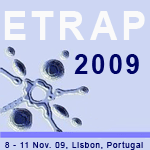
Word from the President

Yesterday the UK's Nuclear Decommissioning Authority (the NDA) announced the winners in its auction of land that can be used to build new nuclear power stations. This is a very important step in the process but not, of course, the last step. There is a very long way to go before the UK can expect the first electricity from that first new station.
On hearing the news I thought it might be a good time to reflect on the nuclear scene in the UK.
Much has changed in the past few years and the rate of change seems to be increasing. The first major change I will highlight occurred on 1 April 2005 when the NDA was formed. It is a Government organisation that took ownership of the nuclear sites with an historic legacy of waste and facilities that need to be decommissioned. This is a major task that will cost many billions of pounds over many decades. The formation of the NDA indicated to the industry and public alike that the UK is serious about dealing with this legacy.
Subsequently, the UK Government carried out a review of energy policy and concluded that nuclear, together with energy efficiency and renewables, has a key role to play in moving the UK towards a low carbon economy. It was made very clear that new nuclear power plant projects would receive no government subsidy or funding.
In order to drive progress, a number of further steps have been taken by Government. A new department of state, the Department for Energy and Climate Change (DECC) was created bringing together parts of the environment and industry departments. DECC formed an Office for Nuclear Development specifically charged with finding ways to unblock any inter-departmental difficulties that might arise.
Government recognise their key role in appointing an independent nuclear safety regulator (the NII). The NII have permission to recruit more staff to meet future needs and have updated their processes recognising that new reactors will have been licensed in other countries prior to being built in the UK. They are currently assessing two reactor designs (Areva's EPR and Westinghouse's AP1000) in a "Generic Design Assessment".
Finally, the Government have recognised that the UK's planning processes were inappropriate for large infrastructure projects leading to very long delays in airport, road, rail, etc improvements. New planning legislation has been put in place for strategically important projects, including nuclear projects, that aims to retain democratic accountability while allowing more predictable timelines for investors.
All of these changes give confidence that the UK is serious about building a new generation of nuclear power plants.
This signal has been picked up by European utilities. EdF bought British Energy, the owners and operators of the AGR stations. They have announced their intention to build EPR stations on some of these existing sites. Many other utilities have shown significant interest in developing proposals to build new nuclear stations. RWE and EoN have formed a consortium that has been successful in the NDA land auction and so will now be able to move forward with developing their project proposals.
But to me the most surprising of all the developments in the UK is the fact that all of this nuclear progress has taken place with almost universal support from the media. Quite rightly the media frequently stresses the importance of dealing with the waste and ensuring that safety and security is maintained but nuclear power is now firmly recognised as part of the low carbon solution. It has been a long struggle to get our message heard and we must not take this success for granted. Provided we continue to listen to our stakeholders and treat them with respect then I see a strong and exciting future for the nuclear industry in the UK.
|





